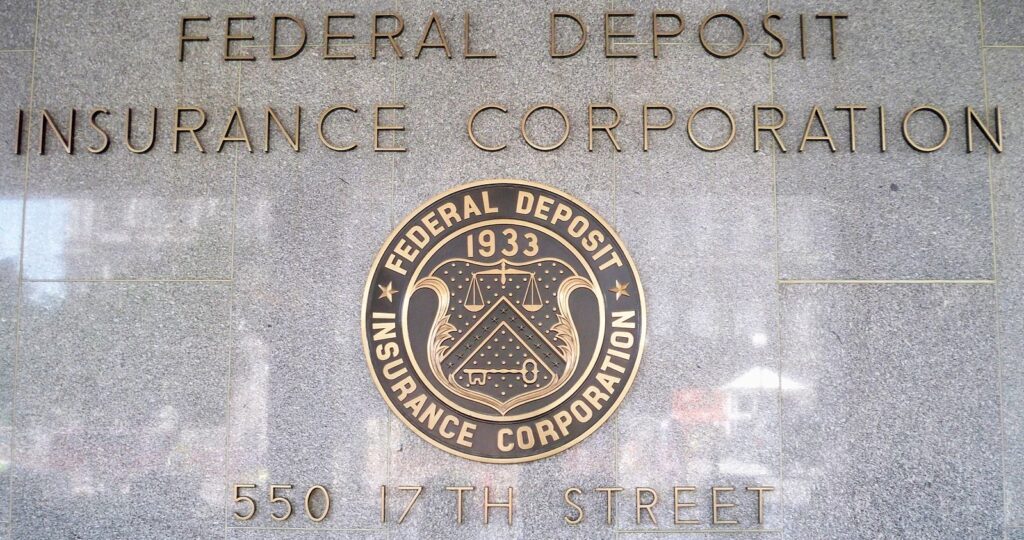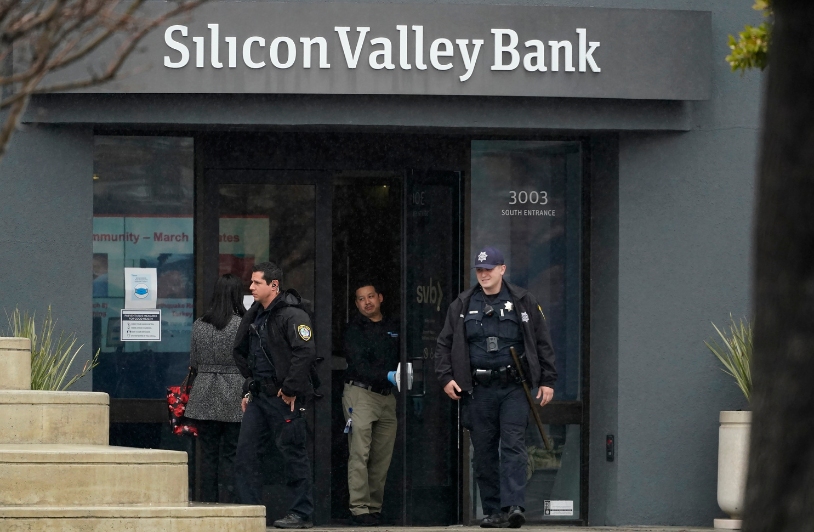SVB Execs Sold Millions of Dollars In Company Shares Just Two Weeks Before Collapse
We are not talking here about dodgy Third World banks, shady sultry tropical havens, or “podunk” newbie bankers in Kansas and Alabama. With the collapse of Silicon Valley Bank, we are talking about some of the wealthiest, best connected, ostensibly most sophisticated bankers, VCs, and technologists on the planet, at the busy intersection of finance AND technology in Silicon Valley, Wall Street, Chicago, LA, Boston, DC, AND … Shanghai and Hong Kong.
THAT is the problem. This tiny elite just screwed up big time. And putting “Humpty Dumpty” — the network of mutual trust that is ultimately at the heart of the capitalist system — back together now, especially given all the other fiscal problems we face, will require creative leadership and international cooperation. Not a lot of that going around these days.
There is no shortage of “liquidity” per se here. There is a loss of confidence in some key financial institutions and uncertainty about what regulators will do. This is threatening to escalate into more “bank runs” and spread to larger, more international institutions.
The next few days will be crucial. More non-SIB banks may face withdrawals. More than half of all tech companies that were listed on stock exchanges for the first time in 2022 banked with Silicon Valley Bank, which cratered on Friday. Many large fintech companies, like Circle + Payoneer and BlockFI, (see list below) had huge deposits that were not covered by the FDIC.
As of March 12, according to The Kobeissi Letter, a leading Silicon Valley watchdog, the following tech companies have fessed up to exposure to Silicon Valley Bank’s Friday foreclosure beyond the $250,000 per account/institution insured.
- Circle: $3.3 billion
- Bill․com: $670 million
- Roku: $487 million
- BlockFi: $227 million
- Roblox: $150 million
- Sunrun: $80 million
- Ginkgo Bio: $74 million
- iRhythm: $55 million
- Rocket Lab: $38 million
- Sangamo Thera: $34 million
- Lending Club: $21 million
- Huuuge Inc: $24 million
- Payoneer: $20 million
- Ambarella: $17 million
- Protagonist Thera: $13 million
- Oncorus: $10 million
- Eiger Bio: $8 million
- Repare Thera: $7 million
We may never find out how many more high tech companies had their money at risk, unless one digs through the fine print of disclosure statements to shareholders. But you can rest assured that this is far from a complete list. But SBV had over $170 billion in uninsured deposits, so at least $164 billion is still unascribed. Indeed, according to Kobeissi, more than half of all VC-backed startups in the US are exposed to Silicon Valley Bank’s demise.

So since tech companies are all about LABOR, theses companies may be in special trouble unless they can find ways to pay their people. And that strikes right at the heart of the US innovation economy.
So how should the US government respond to this crisis? Right now it appears to be divided — and Secretary Yellen’s Sunday morning statement indicated that the Biden Admin is in no mood to expand fed borrowing or tax dollars to bail out this happy few.
Many Republicans also want the US Government to step aside and let these high tech companies and high tech banks feel the consequences of their own risky behavior.
Clearly the industry’s own risky behavior has not helped it win much sympathy. It is not the case that the institutions involved were just innocent victims of the Fed’s recent interest rate hikes. The uninsured deposits of banks like Silvergate Capital, SVB, and Signature Bank soared last year. In SVB’s case, we know it used these increased deposits to buy US Treasuries and issue long term loans at low interest rates. It failed to hedge this portfolio; it reportedly did not even have a risk officer last year. And before the crisis hit, it was lobbying key members of the US Congress and Senate for looser bank regulation — leading fundraisers in California for Senators from Virginia!
It has also now emerged that key SVB execs sold significant blocks of shares in their company as early as Feb 27 (CEO sold 11%/$5.3 million). They also paid big bonuses to all key staff on Friday, before the FDIC took over. (!!!) Now they have all become good socialists, begging for government bailouts or purchases by more tightly-regulated banking giants like JP Morgan or Bank of America.
A key Silicon Valley Bank board member, Mary Miller, had reportedly been a senior Obama Treasury official. And its CEO Greg Becker, had been “Pelosied” onto the San Francisco Fed Board! When insiders like this screw up AND FAIL TO HEDGE or EVEN HIRE a RISK MANAGER ALL LAST YEAR, you know the “barbarians at the gate” are not your only problem.
So, yes, this is an artificial crisis almost entirely of Silicon Valley’s making. But our response to it cannot be dictated by previous crises, or by knee-jerk posturing. It cries out for decisive government action — it is a good “teachable moment” for Silicon/Wall Street libertarians. With great respect to Secretary Yellen, she had never worked for a non-university/non-government entrepreneurial day job since high school. Right now there are thousands of the country’s most highly skilled workers who don’t know where their next paycheck will come from.
So by all means punish the senior banksters, investors, and execs and their friends in D.C. who created this fiasco — do not repeat the mistake of the 2008-2009 financial crisis and simply put them back in charge.
But please do figure out before Monday’s Asian stock markets open at 10 pm Eastern this evening a way to clean up this mess and at least provide payday loans for all these skilled workers and let them go back to work designing the future.





